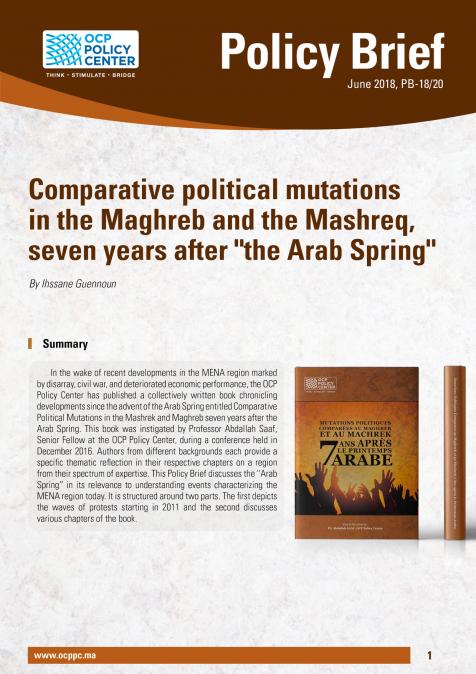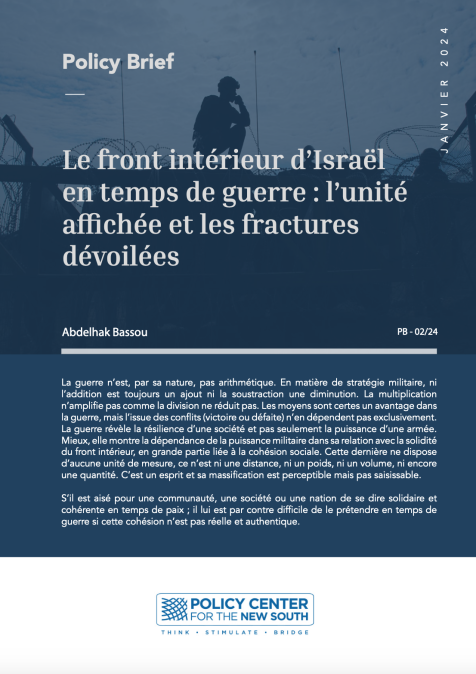Publications /
Policy Brief
In the wake of recent developments in the MENA region marked by disarray, civil war, and deteriorated economic performance, the OCP Policy Center has published a collectively written book chronicling developments since the advent of the Arab Spring entitled Comparative Political Mutations in the Mashrek and Maghreb seven years after the Arab Spring. This book was instigated by Professor Abdallah Saaf, Senior Fellow at the OCP Policy Center, during a conference held in December 2016. Authors from different backgrounds each provide a specific thematic reflection in their respective chapters on a region from their spectrum of expertise. This Policy Brief discusses the ''Arab Spring’’ in its relevance to understanding events characterizing the MENA region today. It is structured around two parts. The first depicts the waves of protests starting in 2011 and the second discusses various chapters of the book.







